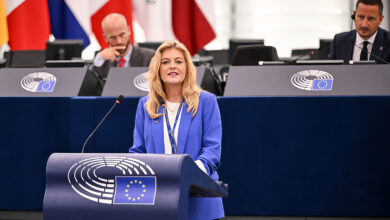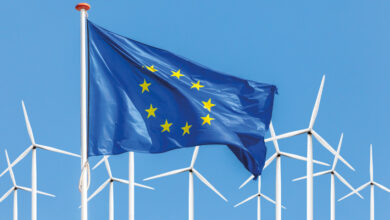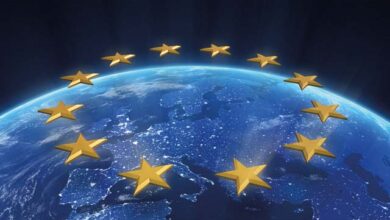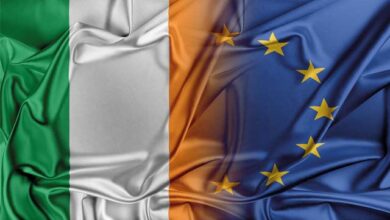Ringside Ireland must weigh-in


Amidst the impending flurry of gruelling negotiations simultaneously aimed at fortifying each post-Brexit Britain and Europe, Ireland needs to box clever and defend its national interests. Brian Hayes, Fine Gael’s Dublin MEP writes.
Ireland has three core international relationships – with the UK, the European Union and the United States. The Brexit referendum and the election of Donald Trump as President of the United States have brought a huge element of uncertainty into two of these relationships.
The decision by the UK to leave the EU is a profoundly disruptive event for the UK, the EU and Ireland. The full implications of Brexit will gradually unfold in the years ahead. The negotiations surrounding Brexit will be a marathon, not a sprint.
They will engage and challenge successive governments, the Irish political system and the public service for at least a decade. A fully focused national effort must include all political parties, civic society and a fully engaged public.
Immediately after the Brexit referendum result last June the government moved quickly to respond. A Brexit cabinet committee chaired by the Taoiseach was established. Each department has been tasked to identify relevant priorities in its own area of responsibility.
A major diplomatic effort began immediately to convey Irish concerns in every capital in Europe. Charlie Flanagan, Minister for Foreign Affairs, spoke personally to each Foreign Minister of the EU.
Key diplomatic missions have been strengthened, Irish diplomats and government agencies such as the IDA, Bord Bia and Enterprise Ireland are fully engaged with the issue. Since the referendum, Taoiseach Enda Kenny has been meeting heads of government all across Europe and senior EU officials to explain the Irish case.
Michel Barnier, the lead EU negotiator on Brexit, has been to Dublin. A major diplomatic effort aimed at influencing British thinking is ongoing. Enda Kenny has been to Downing Street and British PM, Theresa May, has been to Dublin.
It is now widely acknowledged that Ireland’s particular concerns regarding Brexit are well understood in Brussels, in European capitals and in London; this is clear from statements issued by many EU leaders and by Theresa May in her Lancaster House speech and in the British White Paper on Brexit.
In Dublin recently, Commissioner Pierre Moscovici made it clear that Ireland’s interests “are understood at EU level and will be defended”. I am a member of the EPP Brexit group in the European Parliament which recently met senior decision makers in London including the Chancellor of the Exchequer, Philip Hammond and the Governor of the Bank of England, Mark Carney.
All Irish MEPs are lobbying hard in the EU parliament to protect Irish interests. Both the British and EU Parliaments will vote on the final Brexit deal. The Taoiseach has outlined Ireland’s key concerns in any future negotiations.
These are:
- the preservation of the free travel area between Ireland and the UK;
- no return to hard borders on the island of Ireland;
- support for the agreements and institutions underpinning the peace process;
- the closest possible trading relations between the EU and the UK post-Brexit; and
- the future development of the EU.
Brexit negotiations will be extremely complex, politically difficult and prolonged. Political developments within the UK and within the EU will also influence negotiations.
From an Irish perspective the most difficult part of the jigsaw is Northern Ireland. The collapse of the Executive and a fresh round of elections means, that unlike Wales and Scotland, Northern Ireland will probably be incapable of reaching an agreed position on Brexit.
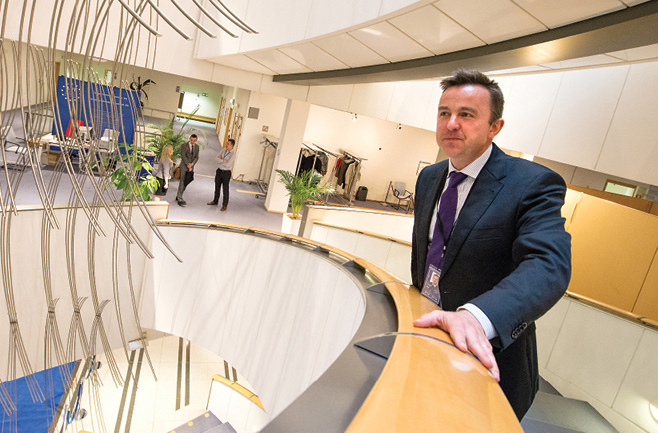
“I have been advocating for some months that consideration should be given to negotiating a special EU status for Northern Ireland.”
As co-guarantors of the Peace Process the two sovereign governments will be attempting to reach a consensus approach. I have been advocating for some months that consideration should be given to negotiating a special EU status for Northern Ireland when the UK leaves the EU.
Recognising the importance of the peace process and the political imperative of keeping the country border free, I have also suggested that the Irish government should be prepared to make a financial contribution to the EU budget in support of such a proposal.
Geography dictates that Ireland and Britain will always have a close relationship. In the past that relationship was suffocating from an Irish perspective. Joining the EEC in 1973 allowed Ireland to come out from under Britain’s skirts.
Membership of the EEC, now the EU, has been transformational for Ireland, economically, politically and socially. Ireland is now a dynamic, open, progressive society and, according to the UN Human Development Index, in the top 10 most developed countries in the world.
Following The UK out of the EU would be a catastrophic error of judgement by Ireland. Before joining the EEC our trade was largely with Britain. Today 11 per cent of our goods exports go to Britain, 40 per cent to the rest of the EU and 49 per cent to the rest of the world.
While the British market is critically important for certain sectors, particularly food and for SMEs, our exports to the rest of the EU continue to grow at a much faster rate than our exports to the UK.
Ireland must continue to compete for market share in Britain, but if we are to reduce the risks to trade of a hard Brexit there must be a strong focus on building exports and trade links with the EU 26, particularly within Eurozone countries.
The EU is the largest and most prosperous single market in the world. Even without the UK it will be a market of 450 million people. Trading within the Eurozone has the added advantage of avoiding currency risks which is now a serious problem for exporters to the UK.
A pivot to Europe must be part of the response to Brexit. SMEs in particular will need sustained support to develop export markets in mainland Europe. The dollar has also been strong against the euro in 2016 and is likely to remain so for this year at least.
This is the year to make a really strong push to grow our exports to the US and tourist numbers from there. Huge responsibility will fall on public services to navigate a safe passage for Ireland through Brexit stormy waters.
Fallout from Brexit will have an impact on many sectors of the Irish economy and wider society. Some of the consequences will be negative but there will also be opportunities.
The outgoing US ambassador to Ireland, Kevin O’Malley, made the point that Brexit will make Ireland an even more attractive location for foreign investment seeking a base in the EU. Irish universities and colleges are also likely to see increased interest from non-EU students.
The banking and financial crisis, which started in Ireland at the beginning of 2008, challenged this country like never before. A national effort was required to stabilise the economy and get the country back on the road to a sustainable recovery.
Brexit will require a similar national effort. Hard work, persistence and determination will see us through.

